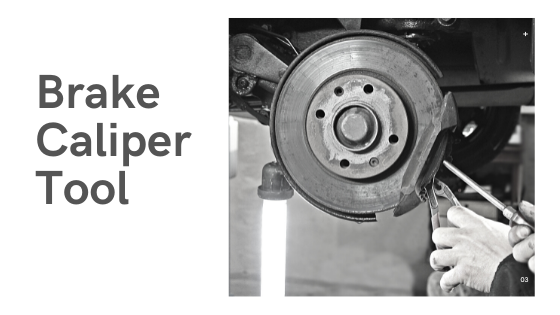Over time your car brake components wear out or deteriorate and are in need of repair and replacement. Brake Noise, commonly referred to as “Brake Squeal” or “Grinding Brakes”, is usually an indication that it is time to bring your vehicle to an Auto Repair shop to have your brakes repaired. Most brake pads have squeakers – as the brake pad is ground down through normal use, it eventually reaches the squeaker, which is a reminder to change your brake pads.
If the problem goes on for too long, a worn brake pad will eventually deteriorate down to the steel backing plate and create grooves in the brake rotor, which will require a brake rotor replacement and additional cost. If your brakes are squealing or grinding it is best to deal with the problem as quickly as possible to avoid additional brake system damage and cost. If you consider yourself handy, you could replace the brakes on your own if you have the right tools, such as the brake caliper compression tool. If not, then you should go the repair shop as soon as possible.
Simply put, brakes allow you to stop your car. A good braking system is necessary for any car to function. The quality of your brakes has a direct impact on your car’s performance and safety.
The concept of a braking system is easy enough to grasp. Each wheel has a metal, disc-shaped rotor attached to it. The rotor spins with the wheel, so if you stop its rotation, the wheel, along with the rest of the car will stop as well. When you press on the brake pedal, hydraulic fluid passes through a system of pressurized tubes.
Disc brake systems have a caliper for every rotor. It’s basically a clamp that presses two brake pads against the rotor, causing it to slow down. The caliper is normally open, but the pressure of the hydraulic fluid forces a piston against the brake pads. It’s very similar to clamping your hands against the outer bar of a wheelchair in order to make it come to a stop.

Many cars use a combination of disc brakes in the front and drum brakes in the back. While a disc brake uses calipers to clamp a rotor, drum brakes use brake shoes to press outward against the inside of a drum. A drum is a bowl-shaped piece of metal and when pressure is put against the inside of it, its rotation (and thus the wheel’s) starts to slow down.
It’s difficult to inspect your own brakes because in order to do so, you’d have to remove each tire. There are, however, a number of warning signs that you’re brakes should be checked. Here are some of those signs:
- Fading – when your brakes lose their responsiveness.
- Pulling – if your car pulls to one side or the other when you engage the brakes.
- Grinding – a loud, growling metallic sound may mean that your brake pads are completely worn out.
- Vibration – your rotors may be warped if you notice a lot of vibration during brake use.
The brakes themselves also have what’s known as a wear indicator. It’s a small piece of metal on the brake pads that will only touch the rotor when the brake pads are all the way worn out. When you use your brakes under these conditions, you’ll notice a high-pitched squeal coming from your car.
If you start to hear your wear indicator or if you notice any of these warning signs, you should look into getting your brakes checked out immediately.